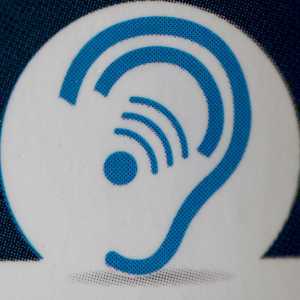MedicalResearch.com Interview with:
Sharon G. Curhan, MD, ScM
Channing Division of Network Medicine
Department of Medicine
Brigham and Women's Hospital
Harvard Medical School
Boston, MA 02115
MedicalResearch.com: What is the background for this study? What are the main findings?
Response: Hearing loss affects approximately 48 million Americans and the number is expected to increase as the population ages. Some previous studies suggested that menopause may increase the risk for hearing loss, presumably due to the reduction in circulating estrogen levels, and that postmenopausal hormone therapy might slow hearing decline by “replacing” estrogen. To evaluate the role of menopause and postmenopausal hormone therapy as risk factors for hearing loss, we examined the independent associations between menopausal status, oral hormone therapy, and risk of self-reported hearing loss in 80,972 women who are participants in the Nurses’ Health Study II, aged 27-44 years at baseline, and were followed from 1991 to 2013.
After more than 1.4 million person-years of follow-up, 18,558 cases of hearing loss were reported (~23% of the women developed hearing loss). We did not observe an overall independent association between menopausal status and risk of hearing loss.
However, the risk among women who underwent natural menopause at an older age was higher. Specifically, the risk among women who underwent natural menopause at age 50 or older was 10% higher than among those who underwent natural menopause before age 50 [multivariable-adjusted relative risk (MVRR): 1.10, 95% CI 1.03, 1.17]. When we conducted an analysis restricted to women who underwent natural menopause and did not use hormone therapy (HT), the multivariable-adjusted relative risk among women who underwent natural menopause at age 50-54 years was 21% higher (MVRR: 1.12, 95% CI: 1.10, 1.34), and among women who underwent natural menopause at age 55+ years was 29% higher (MVRR: 1.29, 95% CI: 1.11, 1.50), compared with women who underwent natural menopause before age 50.
Among postmenopausal women, we also found that use of oral HT was associated with higher risk of hearing loss, and the magnitude of the risk tended to increase with longer duration of use (p-trend < 0.001). Compared with women who never used any type of HT, the MVRR of hearing loss among women who used oral HT for 5-9.9 years was 15% higher (MVRR: 1.15, 95% CI: 1.06, 1.24), and for 10+ years was 21% higher (MVRR: 1.21, 95% CI: 1.07, 1.37). When specific types of oral HT were examined, longer duration of use of either oral estrogen-only or of combined estrogen plus progestogen HT were each associated with higher risk. Fewer women reported use of progestogen-only oral HT, yet among these women a higher risk was suggested, but not significant (MVRR: 1.15, 95% CI: 0.98, 1.35). Transdermal HT use was less common, but the associations observed were similar to those with
oral hormone therapy. When examined separately by type of menopause, the results for HT use were similar.
(more…)











